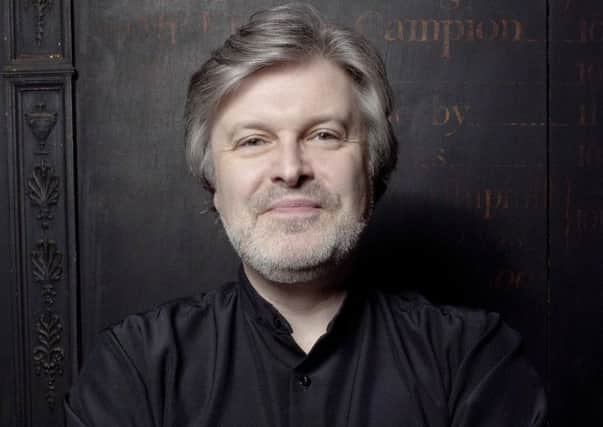Interview: composer Sir James MacMillan on how his musical output has been coloured by personal tragedy


As a family, the recent January anniversary was something of a watershed. Speaking two days beforehand, MacMillan described the atmosphere at the family home outside Largs as “really tense and quite jittery”. “The best we can hope for is a feeling of having lived through the first year. It’s time for Catherine and the two of us [he and his wife Lynne] to begin again.”
For MacMillan, though, the music has never stopped. Not even during the lowest of personal moments. He was in Baltimore last March for the premiere of his second Percussion Concerto (repeated later at the 2016 Edinburgh International Festival), then to Oregon in July for his new European Requiem, written specially for the Oregon Bach Festival. October saw the London premiere of a new Stabat Mater, commissioned by Harry Christophers’ stylish vocal group The Sixteen, a recording of which is released next week.
Advertisement
Hide AdAdvertisement
Hide AdIt’s tempting to read into that last work – a setting of the 13th century Marian hymn depicting the Virgin Mary’s suffering as she beholds her crucified son – references to the family’s personal tragedy. But as MacMillan quickly points out, the work was completed before Sara died. “But I was amazed how full of sadness it is; it’s the ultimate spiritual Kindertotenlieder,” he explains. “Yet I wrote it without knowing Sara was going to die. Maybe I did, deep down. Maybe the fact we’d been told early on by doctors she wouldn’t have a long life was in the background.”
It’s just one of many MacMillan works, including four Scottish premieres, being featured in Glasgow throughout March (with some performances in Edinburgh and St Andrews) in what has been dubbed a “coincidental” MacMillan Fest.
The BBC SSO offers the Viola Concerto, with the gutsy Lawrence Power as soloist, early in March; and at the end of the month, the composer himself will conduct his own ritually intense Symphony No 4, premiered two years ago at the London Proms. The SCO, besides the Stabat Mater, will resurrect Tryst – MacMillan’s first big orchestral hit written for the SCO in 1989 – as well as a newly commissioned concertante arrangement of his 2007 Horn Quintet.
There will be performances, too, at the Royal Conservatoire of Scotland, featuring the world-famous Nash Ensemble and RCS students.
“These events seem to have come together for no good reason other than sheer coincidence”, says MacMillan. Regardless of that, it’s a timely focus on his ceaseless output, even when the chips are down.
And there’s more to come. A new trombone concerto is to be premiered in April by the Royal Concertgebouw Orchestra in Amsterdam, written for its principal trombonist Jorgen van Rijen. There are inevitable allusions to the sadness MacMillan was experiencing. “I don’t think it’s a morose piece, but as I settled down to write it in January/February of last year, thoughts of Sara were with me all the time,” he recalls. “It’s a big abstract piece, it has no particular message, but subliminally it’s haunted by her memory.”
More enigmatic, perhaps, is the European Requiem, which has its UK premiere at this summer. Despite the timing, it has nothing to do with Brexit, an issue the politically vocal composer made every attempt to stay distanced from. “I didn’t want to get involved, mainly because the previous referendum was so horrible, so divisive. I lost friends and relatives drifted away.”
Advertisement
Hide AdAdvertisement
Hide AdThat said, his European Requiem is shrouded in intrigue. It has a “secret dedicatee”, the composer reveals, but he won’t say who. “My publishers pleaded with me not to reveal that…ever. They fear we could have another Salman Rushdie situation on our hands.” Intriguing.
Then, he whispers, “there’s a text I’ve been looking at to set that’s been irritating me, and I’m looking at how it might be done.” But he won’t say what it is, other than to add teasingly that “people are going to hate me for it.” Even more intriguing. ■
*Sir James MacMillan’s music features in various performances by the BBC SSO, the SCO and at the Royal Conservatoire of Scotland. See www.bbc.co.uk/bbcsso, www.sco.co.uk & www.rcs.ac.uk for details.